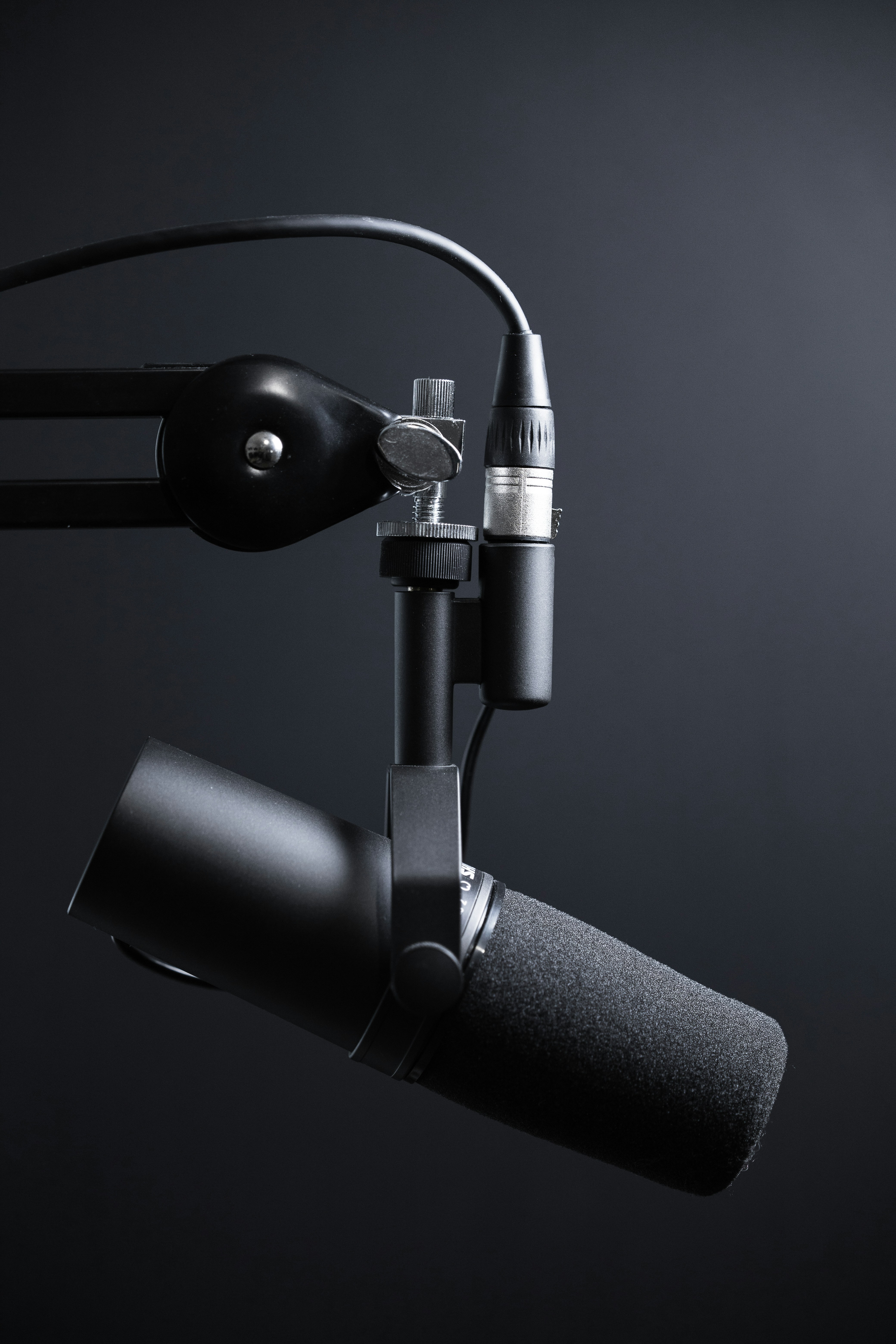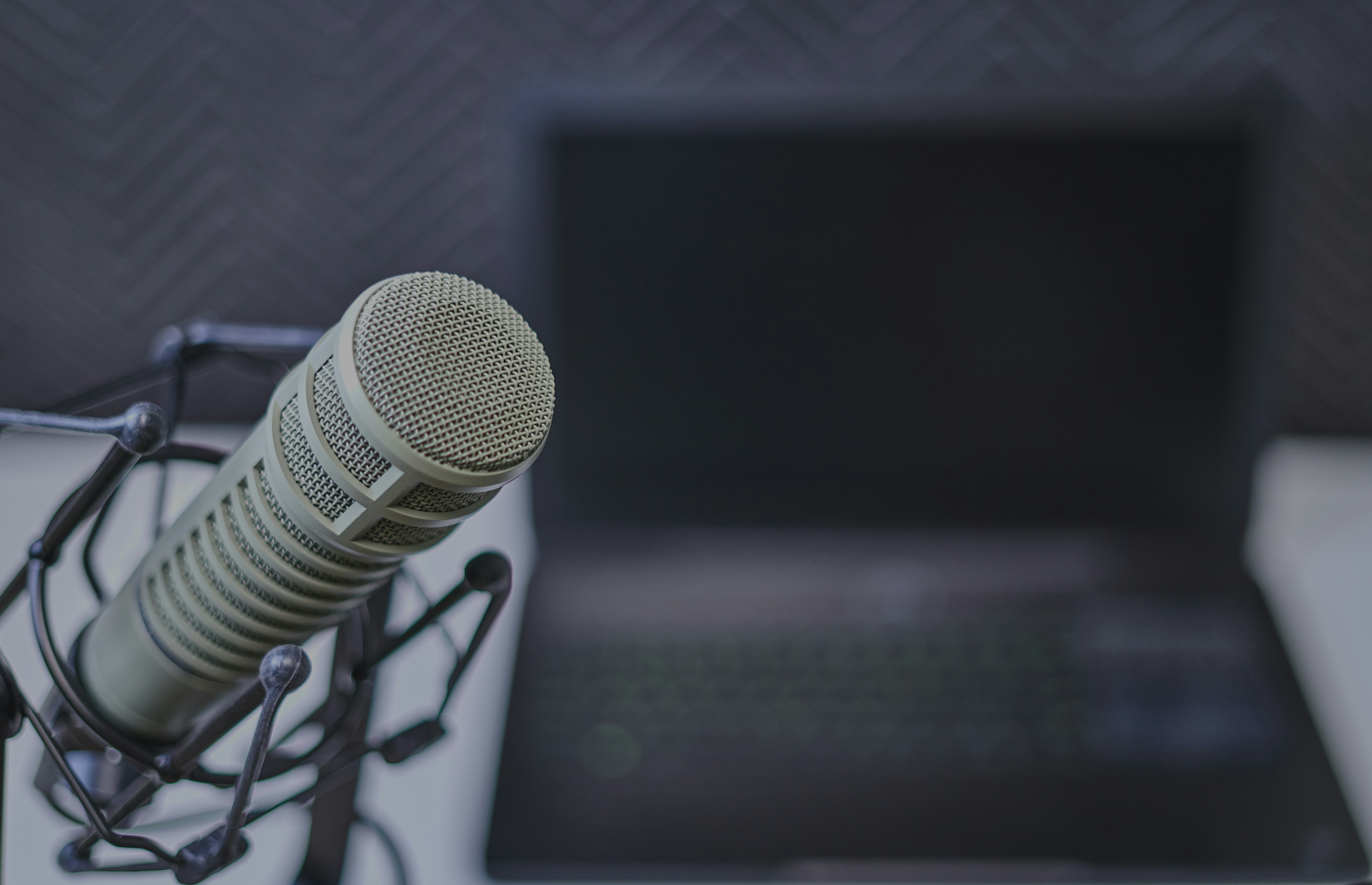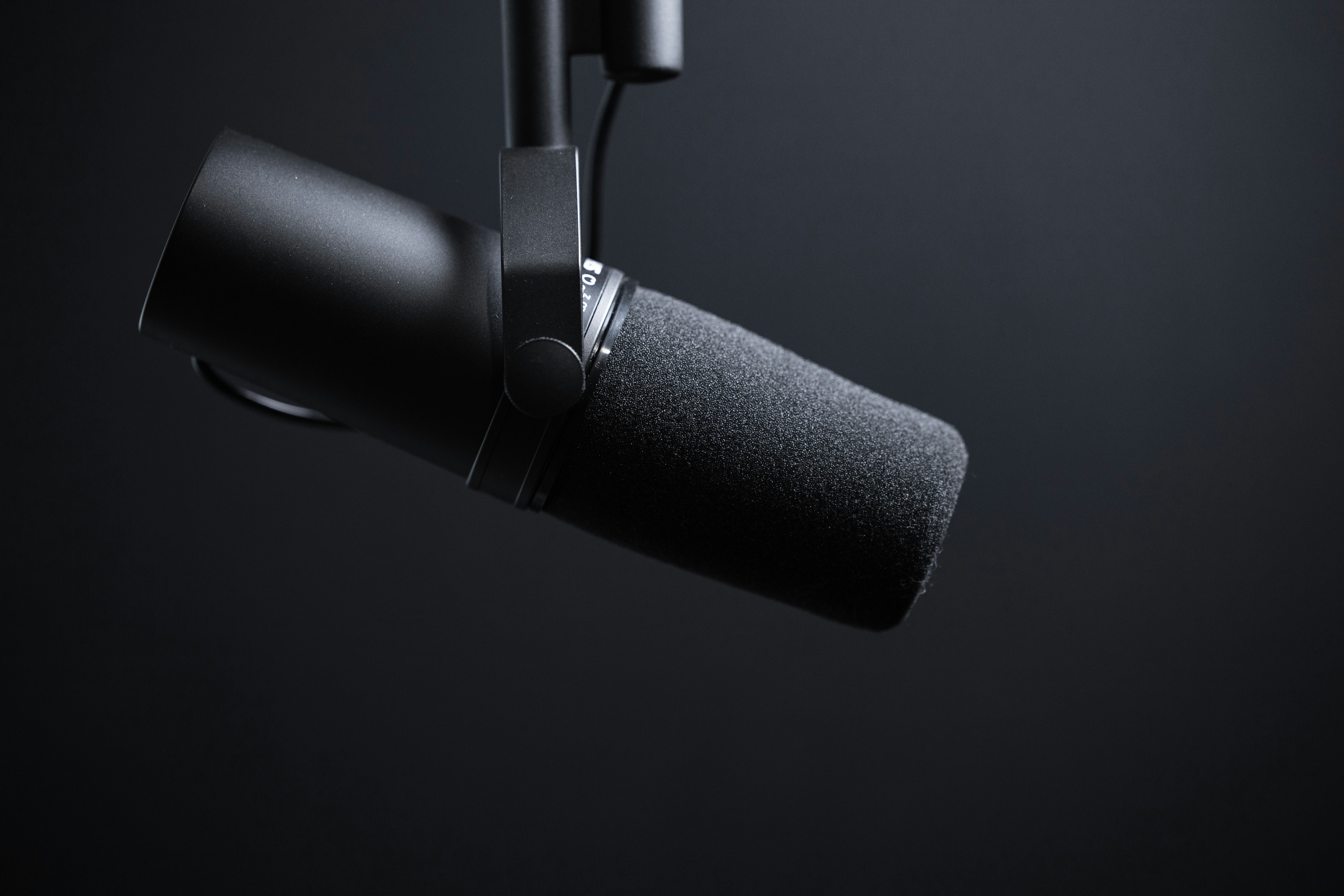If you’ve ever thought about starting your own podcast, then you know how important it is to find your unique voice in the crowded world of podcasts. Fortunately, we’re here to help. In this article, we’ll provide you with some essential tips for finding your voice as a beginning podcaster. From choosing the right podcasting equipment to developing your speaking style, we’ll walk you through everything you need to know to create a captivating and engaging podcast that resonates with your audience. So whether you’re a seasoned podcaster looking to refine your skills or a complete beginner taking your first step into the world of podcasting, our tips will help you find your voice and stand out in the podcasting community.
Choosing the Right Equipment
Starting a podcast can be an exciting and fulfilling venture. But before you hit that record button, it’s essential to choose the right equipment that will help you capture clear and professional-sounding audio. In this comprehensive guide, we’ll walk you through the different types of equipment you’ll need for your podcasting journey.
Microphones
Microphones are one of the most important pieces of equipment for podcasters. They are responsible for capturing your voice and delivering it to your audience with clarity and quality. Here are some recommended microphone brands:
Shure
Shure is a well-known and trusted brand in the audio industry. Their microphones, such as the Shure SM58 and Shure SM7B, are popular choices among podcasters for their excellent sound reproduction and durability.
Rode
Rode microphones, like the Rode Podcaster and Rode NT1, are highly regarded for their warm and rich sound. Rode offers a wide range of microphones suitable for different podcasting setups and budgets.
Audio-Technica
Audio-Technica is another reputable brand that offers a variety of microphones suitable for podcasting. The Audio-Technica ATR2100x and Audio-Technica AT2020 are commonly recommended for their affordability and excellent sound quality.
When choosing a microphone, consider factors such as your recording environment, budget, and personal preference. It’s always a good idea to read reviews and listen to sample recordings to find the microphone that best suits your needs.
Headphones
Headphones are not only essential for monitoring your audio while recording but also for a reliable way to evaluate your podcast’s sound quality during editing. Here are some recommended headphone brands:
Sennheiser
Sennheiser headphones are known for their accurate sound reproduction and comfort. Models like the Sennheiser HD 280 Pro and Sennheiser HD 650 are popular choices among podcasters who prioritize audio quality.
Sony
Sony offers a wide range of headphones suitable for various budgets and needs. The Sony MDR-7506 and Sony WH-1000XM4 are often recommended for their exceptional sound quality and noise-canceling capabilities.
Beyerdynamic
Beyerdynamic is a renowned brand in the audio industry, loved by many podcasters for their superior sound and build quality. Models like the Beyerdynamic DT 770 Pro and Beyerdynamic DT 990 Pro are frequently used by professionals and enthusiasts alike.
When selecting headphones, consider factors such as comfort, sound quality, and whether you prefer open-back or closed-back designs. It’s crucial to choose headphones that accurately represent the audio you’re recording and allow you to make precise edits during post-production.
Audio Interfaces
An audio interface acts as the bridge between your microphone and your computer, converting analog audio signals into digital data. Here are some recommended audio interface brands:
Focusrite
Focusrite audio interfaces, like the Focusrite Scarlett series, are well-regarded for their high-quality preamps and ease of use. These interfaces offer a range of options to accommodate different podcasting setups and recording needs.
Behringer
Behringer audio interfaces provide excellent value for money, making them popular among beginner podcasters. The Behringer U-Phoria UM2 and Behringer UMC404HD are often recommended for their reliability and affordability.
PreSonus
PreSonus audio interfaces offer a diverse range of options that cater to podcasters of all levels. The PreSonus AudioBox USB and PreSonus Studio 24c are known for their solid build quality and reliable performance.
When choosing an audio interface, consider factors such as the number of inputs and outputs you’ll need, the type of connection (USB, Thunderbolt, etc.), and the quality of the preamps. A good audio interface can greatly enhance the sound quality of your recordings.
Pop Filters
Pop filters are essential accessories that help reduce plosive sounds, such as “p” and “b” sounds, from being recorded. Here are some recommended pop filter brands:
Stedman
Stedman offers a range of pop filters designed to effectively minimize plosives while maintaining the clarity of your voice recordings. The Stedman Proscreen XL and Stedman PS101 are commonly used and highly regarded by podcasters.
Nady
Nady pop filters, like the Nady MPF-6 and Nady MPF-6-6, are affordable options that effectively reduce plosives without affecting the overall audio quality. These pop filters are easy to set up and compatible with a wide range of microphones.
Aokeo
Aokeo pop filters are known for their durability and versatility. The Aokeo Professional Microphone Pop Filter and Aokeo Metal Mesh Pop Filter offer excellent plosive reduction and can be easily adjusted to fit different microphone sizes.
When selecting a pop filter, consider its compatibility with your microphone, ease of use, and the material used for the filter itself. A good pop filter can significantly improve the overall quality of your podcast’s audio.
Boom Arms/Stands
Boom arms or stands are used to hold your microphone in place and allow for easy adjustment during recording. Here are some recommended boom arm/stand brands:
Heil Sound
Heil Sound offers sturdy and reliable boom arms, like the Heil Sound PL-2T Overhead Broadcast Boom and Heil Sound PRSM-B Shock Mount. These boom arms are highly adjustable and designed to minimize vibrations and unwanted noise.
Rode
Rode also produces boom arms suitable for podcasting, such as the Rode PSA1 Swivel Mount Studio Microphone Boom Arm. This boom arm provides excellent flexibility and allows you to position your microphone exactly where you need it.
Gator Frameworks
Gator Frameworks offers a range of boom arms and stands suitable for podcasting setups. The Gator Frameworks Deluxe Desk-Mounted Broadcast Microphone Boom Arm and Gator Frameworks GFW-MIC-0821 Compact Base Bass Drum and Amp Microphone Stand are popular choices for their stability and ease of use.
When choosing a boom arm or stand, consider factors such as the weight and size of your microphone, the adjustability of the arm, and whether you prefer a desk-mounted or floor-standing option. A reliable boom arm or stand ensures that your microphone stays securely in place and allows for effortless positioning.
Shock Mounts
Shock mounts help isolate your microphone from vibrations and handling noise, resulting in cleaner audio recordings. Here are some recommended shock mount brands:
Rycote
Rycote shock mounts, like the Rycote InVision USM and Rycote InVision INV-7, are known for their excellent vibration isolation properties. These shock mounts are widely used in professional recording studios and offer superior performance.
K&M
K&M produces shock mounts that effectively reduce vibrations and stand up to daily use. The K&M 23956 Popkiller and K&M 23966 Microphone Shock Mount are popular choices for their durability and compatibility with different microphone sizes.
On-Stage
On-Stage shock mounts offer reliable performance at an affordable price. The On-Stage MY-420 Studio Microphone Shock Mount and On-Stage MY325 Dynamic Shock Mount effectively isolate your microphone and help eliminate unwanted noise.
When selecting a shock mount, ensure that it is compatible with your microphone’s size and weight. A good shock mount will prevent vibrations and handling noise from being picked up by the microphone, resulting in cleaner and more professional-sounding audio.
Acoustic Treatment
Acoustic treatment is essential for minimizing the negative effects of reflections and reverberation in your recording space. Here are some recommended acoustic treatment brands:
Auralex
Auralex offers a wide range of acoustic treatment solutions, including foam panels, bass traps, and diffusers. Their products, such as the Auralex Acoustics Studiofoam Panels and Auralex Acoustics LENRD Bass Traps, effectively reduce echoes and improve the overall sound quality of your recordings.
Primacoustic
Primacoustic specializes in high-quality acoustic treatment products designed to enhance the acoustics of your recording space. The Primacoustic London 12 Room Kit and Primacoustic Paintables are commonly used to control reflections and create a more controlled listening environment.
ATS Acoustics
ATS Acoustics provides affordable yet effective acoustic treatment solutions suitable for podcasters. Their products, such as the ATS Acoustics Studio Foams and ATS Acoustics Bass Trap, offer excellent sound absorption and help improve the clarity of your recordings.
When considering acoustic treatment, evaluate the size and shape of your recording space, as well as the type of sound reflections you need to address. A well-treated room will help create a more professional and enjoyable listening experience for your audience.
Recording Software
Recording software, also known as Digital Audio Workstations (DAWs), allows you to record, edit, and mix your podcast episodes. Here are some recommended recording software options:
Adobe Audition
Adobe Audition is a comprehensive DAW that offers advanced features for podcast production. Its intuitive interface, powerful editing tools, and seamless integration with other Adobe Creative Cloud applications make it a popular choice among podcasters.
Audacity
Audacity is a free and open-source DAW that provides essential recording and editing capabilities. Despite its simplicity, Audacity offers a range of features suitable for beginner podcasters, such as noise reduction and basic effects processing.
Pro Tools
Pro Tools is a professional-grade DAW widely used in the music and audio industry. While it may have a steeper learning curve, Pro Tools offers unparalleled editing and mixing capabilities, making it an excellent choice for podcasters aiming for a high level of production quality.
When choosing recording software, consider factors such as your budget, desired level of control and flexibility, and compatibility with your computer’s operating system. The right recording software can greatly impact your podcast’s overall sound and production value.

Portable Recorders
Portable recorders allow you to record high-quality audio on the go, making them ideal for interviews, remote recordings, and field recordings. Here are some recommended portable recorder brands:
Zoom
Zoom produces portable recorders known for their reliability and superb audio quality. Models like the Zoom H5 Handy Recorder and Zoom H6 Handy Recorder offer a range of features suitable for various podcasting needs.
Tascam
Tascam portable recorders are widely used by podcasters for their durability and ease of use. The Tascam DR-40X Portable Audio Recorder and Tascam DR-05X Portable Audio Recorder are popular choices for their excellent sound quality and affordability.
Sony
Sony offers portable recorders that combine convenience with exceptional audio performance. The Sony PCM-D10 Portable High-Resolution Audio Recorder and Sony PCM-A10 High-Resolution Audio Recorder are highly regarded for their superior sound capturing capabilities.
When selecting a portable recorder, consider factors such as battery life, file format options, and the presence of built-in microphones. A reliable portable recorder will allow you to capture high-quality audio wherever your podcasting journey takes you.
Cables and Accessories
Cables and accessories are the unsung heroes of any podcasting setup, ensuring seamless connectivity and enhancing overall functionality. Here are some recommended cable and accessory brands:
Mogami
Mogami cables are known for their exceptional build quality and reliable performance. Whether you need XLR cables, patch cables, or instrument cables, Mogami offers a wide range of options suitable for podcasting setups.
Hosa
Hosa provides reliable and affordable cables and adapters for a variety of audio connections. Their XLR cables, headphone extension cables, and audio adapters are frequently used by podcasters who prioritize both quality and affordability.
Monster Cable
Monster Cable offers a range of high-quality cables designed to deliver pristine audio signals. Their XLR cables, speaker cables, and headphone cables provide excellent conductivity and durability, making them a favorite among podcasters seeking reliable connections.
When it comes to cables and accessories, it’s important to choose products that match your specific needs and provide reliable performance. Investing in quality cables and accessories will ensure that your podcasting setup remains functional and free from unwanted audio issues.
In conclusion, choosing the right equipment for your podcasting journey is crucial in capturing clear and professional-sounding audio. Remember to consider factors such as your recording environment, budget, and personal preferences when selecting microphones, headphones, audio interfaces, pop filters, boom arms/stands, shock mounts, acoustic treatment, recording software, portable recorders, and cables/accessories. With the right equipment, you’ll be well-equipped to express your voice and create engaging content for your audience. Happy podcasting!



